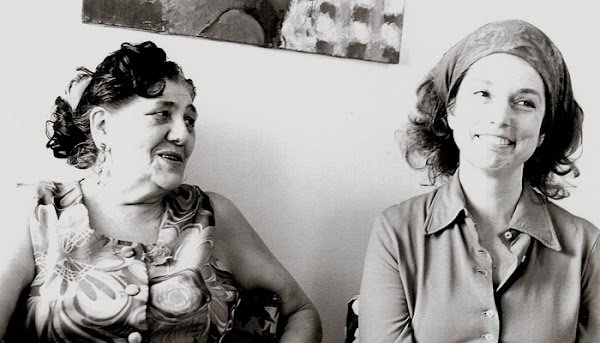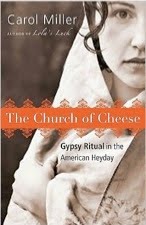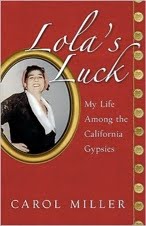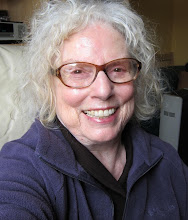My brother has bathroom light on the first floor of his house that he says he hasn't changed for fifty years. We had been talking about lights when he mentioned his everlasting light bulb and praised the genius of big business and American corporations, like GE, who made it. John is very pro-corporation.
My reaction was somewhat different. If corporations can manufacture such wonderfully powerful bulbs, it seems to me rather cavalier of GE and negligible of the public good that they fail to do so. (Of course, lights bulbs that burn for fifty years would markedly reduce future sales.)
I adore my brother. He keeps me stretched in the worldly direction, not least because I am required to consider beliefs and opinions outside my comfort zone.
Thursday, May 26, 2011
Thursday, May 19, 2011
Rose's Indiscretion
Last week, a voice from the past. The call was from a Machvano whose wife's ofisa was once just two blocks from my San Francisco apartment. While reading Church of Cheese, he had been reminded of his aunt Rose's hard life. "So sad,' he said. "And that's all true; I know those stories." Then he added, "You're a writer and you have to write true stories."
A compliment, surely. A half century ago when I first met Machvaia, they were still smarting from the Marlene Dietrich movie "Golden Earrings" and told me that Outsiders knew "nothing true" about Gypsies. But how can Machvaia be portrayed accurately or fairly in consideration of their secretiveness and the stringency of a social structure that defines any cross-culture contact, other than the economic, as criminal?
Then I remembered that Rose had been married to an Outsider, a Gadzo, and publishing her story in a book was no different than broadcasting it at a slava or a wedding, sacred times when the ideal of seeing one another in the goodly way is the appropriate format. Stories, like Rose's, are shames when they become public knowledge. The Machvano caller was Rose's kinsman, which meant he shared her bloodline shame. Through the usual gossip hotline, many had undoubtedly heard about Rose's indiscretion. And more had suspected. But as an eyewitness author, I had given her error the full credit of black and white, irreversible, print.
Charley was kind enough to admit Rose's story was true. But his statement, "You have to write true stories," suggests that he wanted to believe I was required, by the necessities of my craft, to betray him.
A compliment, surely. A half century ago when I first met Machvaia, they were still smarting from the Marlene Dietrich movie "Golden Earrings" and told me that Outsiders knew "nothing true" about Gypsies. But how can Machvaia be portrayed accurately or fairly in consideration of their secretiveness and the stringency of a social structure that defines any cross-culture contact, other than the economic, as criminal?
Then I remembered that Rose had been married to an Outsider, a Gadzo, and publishing her story in a book was no different than broadcasting it at a slava or a wedding, sacred times when the ideal of seeing one another in the goodly way is the appropriate format. Stories, like Rose's, are shames when they become public knowledge. The Machvano caller was Rose's kinsman, which meant he shared her bloodline shame. Through the usual gossip hotline, many had undoubtedly heard about Rose's indiscretion. And more had suspected. But as an eyewitness author, I had given her error the full credit of black and white, irreversible, print.
Charley was kind enough to admit Rose's story was true. But his statement, "You have to write true stories," suggests that he wanted to believe I was required, by the necessities of my craft, to betray him.
Subscribe to:
Posts (Atom)



